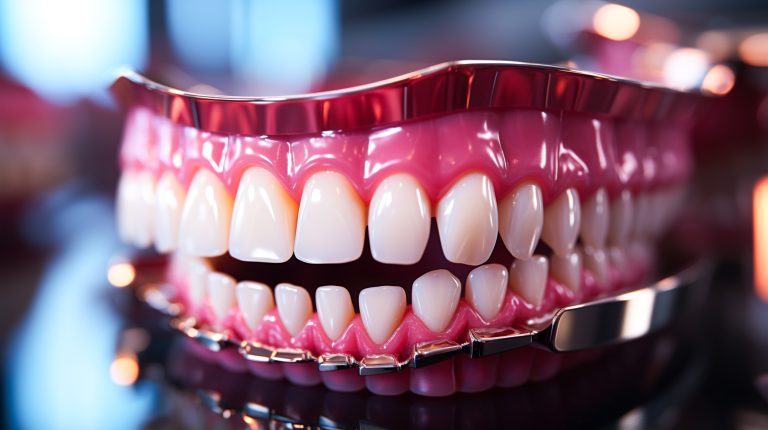Dental crowns are a practical way to restore the appearance and functionality of a tooth. They are typically used to protect a damaged tooth, strengthen a weak tooth, or enhance the appearance of a discolored tooth. While crowns are designed to be durable, proper care may be required to maintain their condition. Regular attention to your oral hygiene and some simple steps can extend the life of your dental crown.
Practice Good Oral Hygiene
A clean mouth is key for the health of your dental crown and surrounding teeth. Bacteria can accumulate, leading to decay or irritation around the crown’s margins. By following an effective oral hygiene routine, you can significantly reduce these risks:
- Brush your teeth twice a day with a soft-bristled toothbrush and fluoride toothpaste. Pay close attention to the area around your crown to remove plaque buildup.
- Floss to help remove food particles and bacteria that collect between the teeth. Use gentle motion around the crown to avoid loosening it accidentally.
- Rinse with an antibacterial mouthwash to further promote cleanliness and minimize bacterial growth.
Avoid Hard and Sticky Foods
Certain foods can damage or dislodge a dental crown. Hard items like ice, hard candies, or unpopped popcorn kernels can create pressure that may chip or crack the crown. Sticky foods including caramel, chewing gum, or taffy can pull at the crown, increasing the risk of it becoming loose.
Opt for softer foods that are less likely to harm your dental crowns. If you eat something hard or sticky, take small bites and chew carefully to limit the pressure exerted on the crown. Paying attention to your diet can play a significant role in prolonging the condition of your dental crown and reduce potential complications.
Address Teeth Grinding
Teeth grinding can pose a threat to the longevity of your dental crowns. Excessive clenching or grinding may place added force on a crown, potentially leading to wear, cracks, or looseness over time. This behavior often occurs during sleep, making it easy to overlook.
A custom-fitted night guard can serve as a protective barrier, reducing the pressure applied to the crown while you sleep. Daytime techniques to manage stress and tension may also help alleviate grinding habits. Mitigating the effects of grinding can protect your dental crowns and promote overall dental health.
Schedule Regular Dental Checkups
Routine dental checkups are key in maintaining the health of your dental crowns and overall oral wellness. During these visits, your dentist will inspect any crowns and surrounding teeth for signs of wear, damage, or decay. Professional cleanings are also an opportunity to remove plaque and tartar in areas that may be difficult to clean with regular brushing and flossing. Dentists can identify potential issues early, offering recommended treatments or adjustments to protect your dental crown.
Protect Your Crown During Physical Activities
If you participate in sports or engage in activities with a risk of facial impact, using a mouthguard may be recommended. Mouthguards can provide an added layer of protection, absorbing shock and minimizing the risk of damage to a dental crown. Wearing one can help safeguard not only your crowns but also your natural teeth, gums, and jaw from potential injuries.
Maintain Your Dental Crowns and Keep Your Smile Healthy
Taking proper care of your dental crowns involves regular oral hygiene, smart dietary choices, addressing harmful habits like teeth grinding, and attending routine dental checkups. A little attention to these areas can go a long way in maintaining the condition of your crowns and enjoying a healthy, confident smile.
If you’re looking for personalized advice, schedule a consultation with your dentist today.
- Zirconia Cap Price: Estimated Cost & Its Long-Term Benefits
- FREHF – The Revolutionary Future Of Human-Centered Technology!
- Adsy.Pw/Hb3 – Boost Your SEO And Drive More Traffic!
- Fitness Based Vacations By Timeshealthmage.com!
- TimesHealthMag Tips For Improving Sleep Quality – Expert Advice For Better Rest!


Leave a Reply